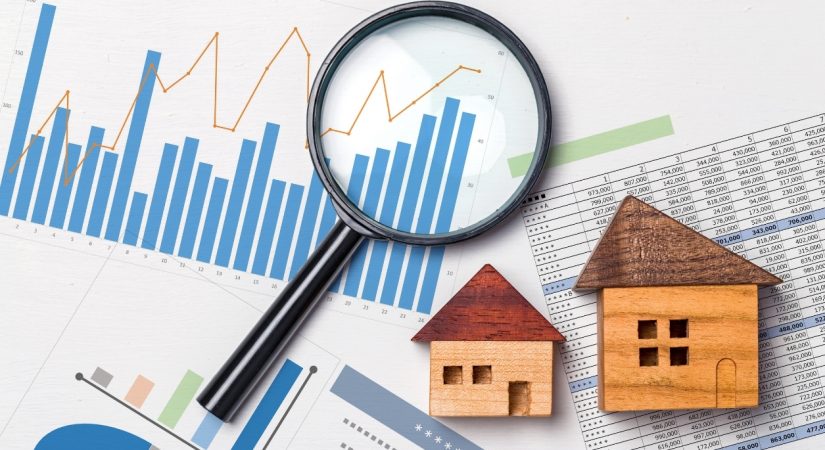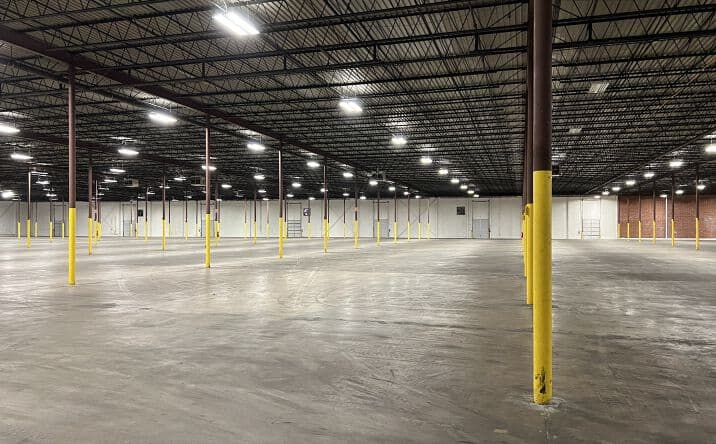The real estate sector has long relied on established platforms like Multiple Listing Services (MLS) to facilitate property sales, sharing critical information among brokers, agents, buyers, and sellers. These centralized databases have shaped how market participants access listings, collaborate, and negotiate. Yet, amid rapid advancements in blockchain technology and decentralized platforms, traditional methods are facing challenges. Web3—the next generation of the internet built on blockchain principles—offers innovative alternatives that promise to redefine property markets.
This article delves into MLS alternatives emerging within Web3 property markets. It examines the limitations of conventional MLS systems, highlights key characteristics of decentralized platforms, and explores how blockchain-powered property exchanges could revolutionize the real estate industry.
The Conventional MLS Model
Multiple Listing Services function as collaborative repositories where real estate professionals post property information to ensure broad market exposure. Their centralized structure enables standardized data entry, facilitates agent cooperation through commission-sharing protocols, and provides buyers with a consolidated catalog of listings.
Despite these advantages, today’s MLS systems encounter increasing skepticism. Geographic fragmentation remains a persistent issue; many MLS databases restrict access to specific regions, limiting cross-market liquidity. Latency in updating listings can result in out-of-date or inaccurate information. Additionally, high membership fees and commissions add financial burdens to smaller brokerages and independent agents. Furthermore, centralized control of MLS data raises questions about transparency, data privacy, and susceptibility to monopolistic practices.
The rise of blockchain and smart contracts under the Web3 umbrella challenges these entrenched norms, offering more open, equitable alternatives for the sharing and management of real estate data.
Understanding Web3 and Its Potential Impact on Real Estate
Web3 envisions a decentralized internet, where users maintain control over their data, identities, and digital assets without relying on central authorities. Blockchain is at the core of this vision, providing secure, transparent, and tamper-resistant record-keeping mechanisms.
In the realm of property markets, Web3 protocols enable peer-to-peer exchanges, programmable contracts, and verifiable ownership certificates known as non-fungible tokens (NFTs). These innovations support new ways of listing, transacting, and managing property assets beyond traditional MLS databases.
Decentralized marketplaces built on blockchain infrastructure can connect buyers and sellers directly, eliminate redundant intermediaries, and automate contractual obligations seamlessly, creating a more efficient, trustworthy ecosystem.

Key Features of MLS Alternatives in Web3 Property Markets
First and foremost, decentralized platforms adopt open and permissionless designs. Unlike conventional MLS databases that require membership approvals, Web3 solutions allow any user meeting compliance criteria to list or browse properties. This inclusivity broadens market access and enhances liquidity.
Transparency is another defining feature. Every transaction or listing update on a blockchain is permanently recorded and publicly verifiable. This auditability reduces conflicts over listing accuracy or ownership disputes, providing participants with confidence and reducing reliance on dispute arbitration.
Smart contracts automate many operational aspects, such as escrow arrangements, commission payments, and contingency enforcement. This reduces administrative overhead and shortens transaction timelines while increasing trust among parties.
Using NFTs to represent property titles or shares introduces fractional ownership possibilities and secondary market trade. Tokenized real estate can be divided into smaller parts, enabling broader investor participation and liquidity that traditional models struggle to achieve.
Examples of Web3 MLS Alternatives and Platforms
Several projects have emerged to explore decentralized real estate listing platforms. Some leverage existing blockchain ecosystems like Ethereum or specialized networks focusing on property markets.
These platforms typically integrate features such as wallet-based identity verification, decentralized finance (DeFi) tools for mortgage and financing, and community governance mechanisms to set marketplace rules democratically.
In practice, a seller posts a property as an NFT or tokenized asset with metadata outlining location, description, and price. Interested buyers interact directly with the smart contract, facilitating secure offers and deposits on-chain. Transactions execute automatically once predefined conditions, such as inspections or financing approvals, are satisfied.
Decentralized autonomous organizations (DAOs) often govern these platforms, allowing stakeholders, including buyers, agents, and developers, to propose and vote on changes. This collaborative governance contrasts with centralized MLS authorities, fostering innovation and fairness.
Benefits for Real Estate Professionals and Consumers
Web3 MLS alternatives offer unique advantages for both agents and consumers. Brokers and agents gain access to reduced-cost listing infrastructure and automated features that lighten administrative burdens. They can participate in global markets unhindered by regional MLS restrictions, expanding their client base.
For buyers and sellers, the immediacy and transparency of blockchain listings simplify decision-making. Verified histories and immutable transaction records decrease the risks of fraud and misrepresentation. Smart contracts ensure funds are handled securely and released according to agreed-upon milestones, increasing financial security.
Additionally, the potential for fractional ownership via tokenization opens real estate investment to broader demographics, democratizing access that has historically been limited to well-resourced buyers.
Challenges and Considerations in Adopting Web3 MLS Solutions
Despite promising attributes, hurdles to widespread adoption remain. Regulatory frameworks governing property sales vary significantly worldwide, complicating the integration of blockchain records with legal title evidencing and transaction finalization.
User experience requires attention. Complex blockchain interfaces can intimidate less tech-savvy participants, making education and streamlined design essential.
Interoperability between traditional MLS platforms and Web3 alternatives is still nascent. Hybrid models may be necessary initially, offering gradual transition paths that combine trusted centralized elements with decentralized innovations.
Data privacy and compliance with laws such as GDPR continue to pose challenges in decentralized environments, requiring sophisticated cryptographic techniques and permissioned access systems.
Finally, scaling blockchain networks to handle real estate market volumes without prohibitive costs or delays warrants continued technological advancement.
The Road Ahead
The trajectory of Web3 MLS alternatives suggests a gradual but significant transformation. Early adopters and innovators in property markets catalyze momentum toward decentralized, transparent, and efficient listing systems.
Over time, integration with governmental land registries, title companies, and financial institutions could forge comprehensive ecosystems where property ownership, financing, and transaction execution coexist seamlessly on blockchain frameworks.
Ultimately, Web3 promises to empower all participants in the real estate market with greater control, reduced costs, and enhanced trust—key ingredients for a more vibrant and accessible property landscape.

Embracing Change in Real Estate Listing Practices
MLS alternatives rooted in Web3 technologies offer an intriguing vision of future property markets. While traditional MLS systems have served well for decades, their limitations in cost, access, and transparency have become increasingly apparent in the digital age.
Decentralized platforms, leveraging blockchain, smart contracts, and tokenization, present innovative pathways to dismantle entrenched inefficiencies. By fostering open participation, automating transactional workflows, and enabling new ownership models, these emerging solutions reshape real estate dynamics.
Real estate professionals and consumers alike must stay informed and prepared as these technologies evolve. The integration of Web3 in property markets represents not just a technological shift but a cultural and operational transformation poised to empower participants and reimagine how real estate is bought, sold, and managed in the years ahead.
Frequently Asked Questions
1. What are MLS alternatives in Web3 property markets?
They are decentralized platforms using blockchain technology to list and manage real estate without relying on traditional centralized MLS databases.
2. How does Web3 improve real estate listings?
Web3 offers transparency, decentralization, and automation through smart contracts, enabling direct peer-to-peer transactions and verified ownership.
3. Can these platforms replace traditional MLS systems?
While completely replacing MLS will take time, Web3 alternatives provide complementary tools that address many traditional MLS limitations.
4. What benefits do smart contracts bring to Web3 property platforms?
They automate processes like escrow, commission payments, and contract execution, reducing delays and administrative overhead.
5. How is property ownership represented in Web3 marketplaces?
Ownership can be tokenized as NFTs or digital assets, allowing secure, verifiable, and sometimes fractional property ownership.
6. Are Web3 MLS alternatives legally recognized?
Legal recognition varies by jurisdiction; ongoing reforms aim to integrate blockchain records with official land registries.
7. What challenges do Web3 property platforms face?
User adoption, regulatory compliance, interoperability with legacy systems, and ensuring data privacy remain significant obstacles.
8. How can real estate agents benefit from Web3 marketplaces?
Agents gain access to global markets, reduced listing fees, and automated workflows, enhancing efficiency and client reach.













